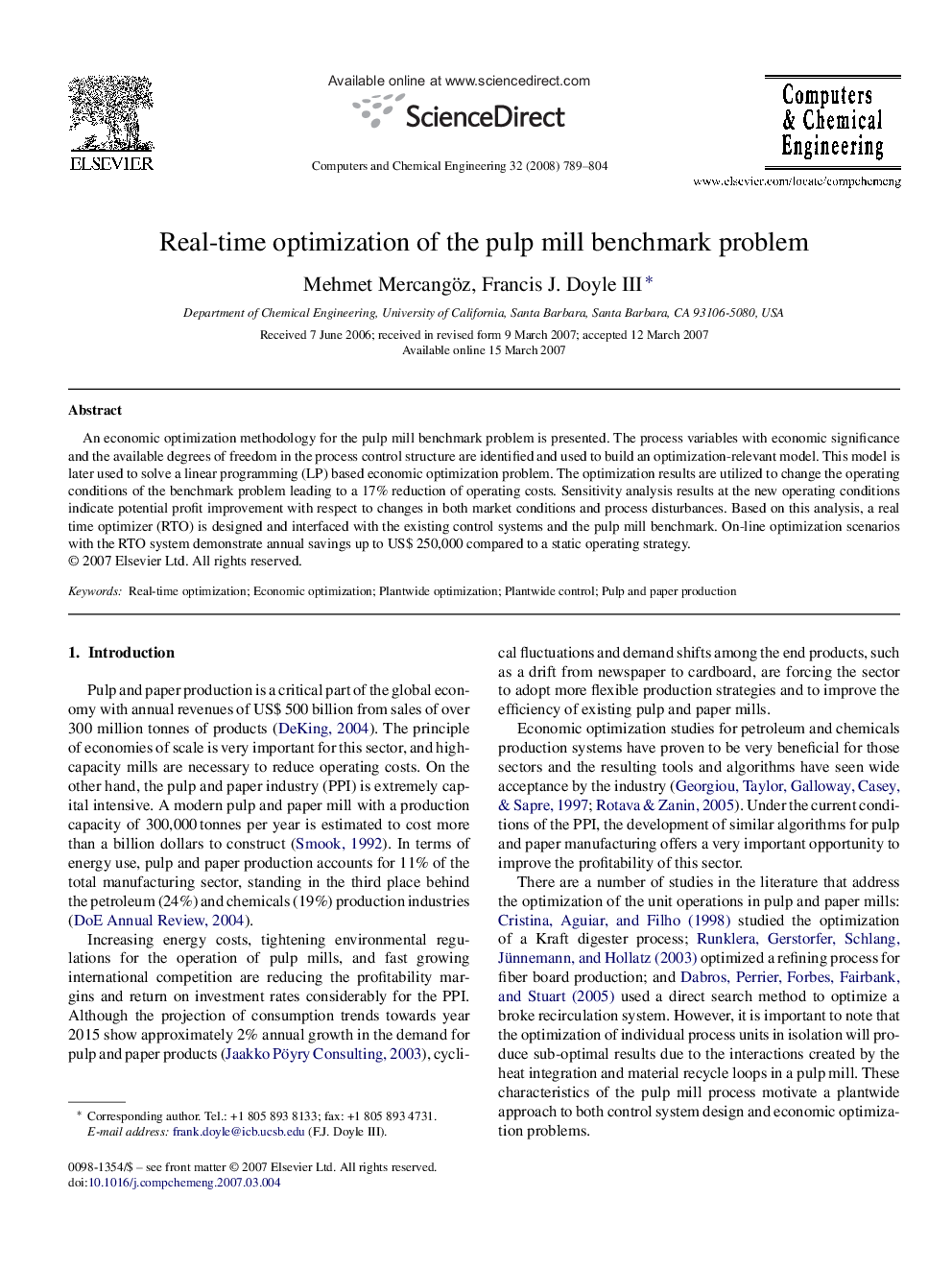| Article ID | Journal | Published Year | Pages | File Type |
|---|---|---|---|---|
| 173728 | Computers & Chemical Engineering | 2008 | 16 Pages |
An economic optimization methodology for the pulp mill benchmark problem is presented. The process variables with economic significance and the available degrees of freedom in the process control structure are identified and used to build an optimization-relevant model. This model is later used to solve a linear programming (LP) based economic optimization problem. The optimization results are utilized to change the operating conditions of the benchmark problem leading to a 17% reduction of operating costs. Sensitivity analysis results at the new operating conditions indicate potential profit improvement with respect to changes in both market conditions and process disturbances. Based on this analysis, a real time optimizer (RTO) is designed and interfaced with the existing control systems and the pulp mill benchmark. On-line optimization scenarios with the RTO system demonstrate annual savings up to US$ 250,000 compared to a static operating strategy.
